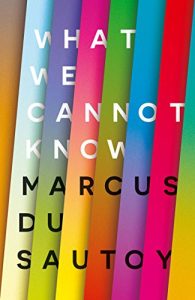 (Originally posted to Advaita Academy Nov 2010)
(Originally posted to Advaita Academy Nov 2010)
All students of advaita know that every ‘thing’ is brahman. And they know that ‘I am brahman’. It is therefore a trivial mathematical reduction to say that everything is me. But there is a danger here. Some people conclude that the world is an appearance that ‘I’ create in some way; that the world ‘is’ because I perceive it. In this way, such people claim that advaita is equivalent to the subjective idealism of the Western philosopher Berkeley, who said “to be is to be perceived” (esse est percipi). This, of course, is a denial of the separate existence of matter and this might naïvely be thought to be equivalent to the Advaitin concept of mithyA.
(Note that the word ‘ idealism’ has nothing to do with aiming for perfection, but means that things have no reality in themselves, only existing as ideas in mind.)
From the point of view of absolute reality, there is only brahman. But then there is nothing to talk about! Such a discussion is only meaningful from the standpoint of empirical reality – our everyday world. If subjective idealism were true, the world would cease to exist when we go to sleep and would have to be created anew on awakening. Berkeley got around this sort of problem by claiming that the world continues to exist because it is perceived by God. And again, one might be tempted to claim that this parallels advaita in that we claim that the world is a creation of Ishvara, rather than the individual. This is not quite the case. In advaita, objects really do exist. Ishvara is the material cause, as well as the efficient cause of the universe. The point is that the substratum of their existence is brahman alone. In the case of Berkeley, however, the objects only exist in the mind of God, as it were.
Greg Goode, who studied Berkeley for his doctorate, believes that Berkeley’s last book may well have resolved his views to match those of advaita, but there were very few copies of that book ever made and it has not been possible to confirm this.
Advaita, then, does not claim that objects have no reality separate from the subject at the level of the world. In this sense, it is a realist philosophy and not an idealist one. This is highlighted by the following very interesting analysis, which I recently came across in one of the talks by Swami Paramarthananda on the Brahma Sutra.
Our principal pramANa, or source of knowledge, is pratyakSha or perception. When we see something for the first time, we see it in the present and, as a result of the examination of its various attributes, we conclude what it is. We can call this ‘cognition’. At some time in the future, we may encounter an object. By comparing its attributes in the present with remembered attributes from the past (as retrieved from the memory), we may be forced to conclude that this object is the same one that we saw in the past. This is called ‘recognition’ – seeing the object again. This fact of recognition is effectively a refutation of idealism (which is also the philosophy of the yogachAra or vij~nAna vAda Buddhists, a branch of Mahayana Buddhism). If the object that is seen now is the same object as the one that was seen in the past, then clearly it has a real existence and is not only an appearance in mind (which might otherwise be called a figment of the imagination).
You can read a series of essays from Chittaranjan Naik on ‘A Realist View of Advaita’.







